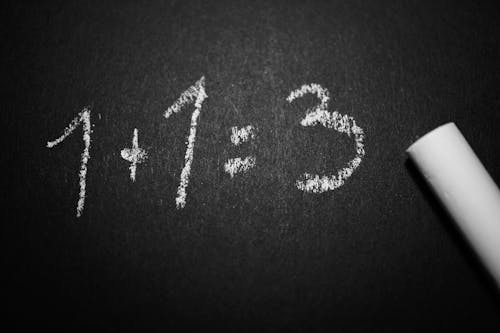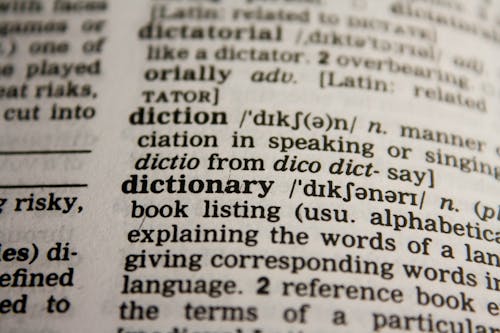Why Maths Reasoning Matters

Maths reasoning is the mathematical counterpart of comprehension. How many times have you miscalculated because you misread or misunderstood a question involving maths? You are not alone. Many, many children have attended Better Tuition over the years because they struggle to understand written maths problems. What’s more, very often their parents tell us they cannot help their child with maths homework because they feel they do not understand it themselves.
We are expert ‘super tutors’, who help children aged from five to sixteen achieve and succeed in school. We know the maths and English curriculum inside out, from Reception right up to GCSE level, so we know exactly how maths reasoning and English comprehension go together – and how YOU can support your child to improve.
What do children need to solve maths reasoning problems?
To successfully solve a maths problem, a child needs skills in:
– Technical reading
– Vocabulary
– Inference and deduction
– Technical maths
– Working memory
Let’s look at them one by one.
Technical reading skills

Maths reasoning is vital
The Issues
Reading is the key. Before a child can begin to solve a maths reasoning problem, s/he must be able to read it. Ofsted’s renewed focus on the teaching of reading and comprehension has brought literacy skills into the spotlight. Poor technical reading skills will cause a child to misunderstand a reasoning problem. For this reason, maths reasoning is closely linked to reading skills.
How you can help
When working at home on maths, ask your child to read the questions aloud to you. This avoids many common errors, such as adding when subtraction is needed. You may also like to have them use highlighters to highlight key words. They could also jot down important information. These active reading strategies help understanding.
Vocabulary

The Issues
We have previously written about why vocabulary matters and how a lack of language skills can create a barrier to learning. A child can’t access a maths reasoning problem if s/he doesn’t understand the words used. For example, your child may understand that 4 x 5 = 20, but s/he may not realise that ‘Find the product of 4 and 5’ means exactly the same.
How You Can Help
At a basic level, make sure your child understands words and phrases relating to the four operations (add, subtract, multiply and divide). Words and phrases such as ‘more than’, ‘sum’, ‘addition’, ‘increase’ and ‘find the total’ are connected to adding up. ‘Subtract’, ‘minus’, ‘decrease’, ‘find the difference’ and ‘deduct’ are related to taking away. ‘Lots of’, ‘multiplication’, ‘find the product’, ‘by’ and ‘times’ are linked to multiplying’. ‘Share’, ‘find the quotient’, and ‘goes into’ point to division.
Inference and Deduction
The Issues
Young mathematicians need to be able to read reasoning problems, process them and understand their meaning. Problems are often worded in such a way that we must ‘read between the lines’ to work out what is being asked.
Let’s take a look at this example:
‘Year 4 are going on a trip to Skipton. 32 children and four adults are going on the trip. If a minibus can take 14 passengers, how many minibuses will be needed for the trip? How many seats will be empty?’
This is quite a simple maths problem. To solve it, all that is needed is:
– Add up the number of children and adults (36) to find out how many passengers there will be altogether.
– Divide this total (36) by 14. The answer is 2, with 8 left over.
Therefore, the school trip will need three minibuses.
– To work out how many seats will be empty, work out the total number of seats on three minibuses (3 x 14 = 42).
– Subtract the number of passengers (42 – 36 = 6)
Therefore, there will be six empty seats.
As you can see, there are quite a number of steps to solve even a simple maths problem like the one above. Good skills of inference are vital for maths reasoning success.
How you can help
Have your child read the problem aloud and ask questions, to help him/ her develop understanding of what is being asked. Encourage him/ her to decode reasoning problems one step at a time. It can also help to refer to previous problems, e.g. ‘This reminds me of that problem we did last week. The one about the supermarket.’
Technical Maths Skills
The Issues
It is clear that children need the skills to carry out calculations. If you find your child has answered a maths reasoning problem incorrectly, you should firstly check their working, as they may have understood the question but wrongly calculated the answer. Sometimes this is down to a minor error (some people call this carelessness!) but sometimes it is caused by a lack of technical skills. As a side note, do please get your child into the habit of writing down their working. After all, you can’t check the inside of their head! Furthermore, writing things down helps to engage and strengthen working memory (more of this below).
How you can help
Parents often tell me they are afraid to show their child the method they use for calculations, as it is different from the one they use in school. In fact, there is no one government-prescribed method for carrying out calculations. It’s okay to show your child an alternative method. If they have more success with ‘your’ method, this will build up their confidence and they will then find it easier to understand their teacher’s method. You can also let your child’s teacher know they are not secure in, e.g. multiplication. Some schools run maths workshops to show parents their calculation methods and it’s a very good idea to attend these.
Working Memory
The Issues
Your working memory is where you store facts temporarily. Good working memory is important for making connections, remembering information and carrying out complex reasoning. For those reasons, working memory is really important for success in maths. Some children suffer from poor working memory. This may be a feature or ADHD or ADD, among other conditions. However, it is important to support all children in developing strong working memory.
How you can help
Working memory helps us strengthen our understanding of the connections between numbers. Practising number facts such as:
13 – 6 = 7 and 6 + 7 = 13
helps to develop working memory. If your child has poor working memory, number facts are key to helping him/ her to progress in maths.
You should also take a multisensory approach. This is a fancy way of saying you should include more than one sense when working with maths problems. For example:
– read the problem aloud (hearing)
– draw pictures (or visualise) to help understanding (seeing) – an example of this would be to draw minibuses for the problem above and then draw stick people inside the minibuses in order to work out how many buses you would need for 36 people.
– use lego to help with calculations (touching)
Chunk information into smaller pieces. Take each reasoning problem one step at a time. This helps avoid ‘cognitive overload’.
Finally
Lastly, it is important to remember that learning to read is mainly confined to English lessons – yet reading to learn is essential across the whole curriculum.
If your child needs help to improve his/ her maths reasoning skills, why not get in touch with Better Tuition? Call Paul or Christine on 0161 748 3912 and book your FREE assessment or FREE trial lesson. Find out today why we’re better!





